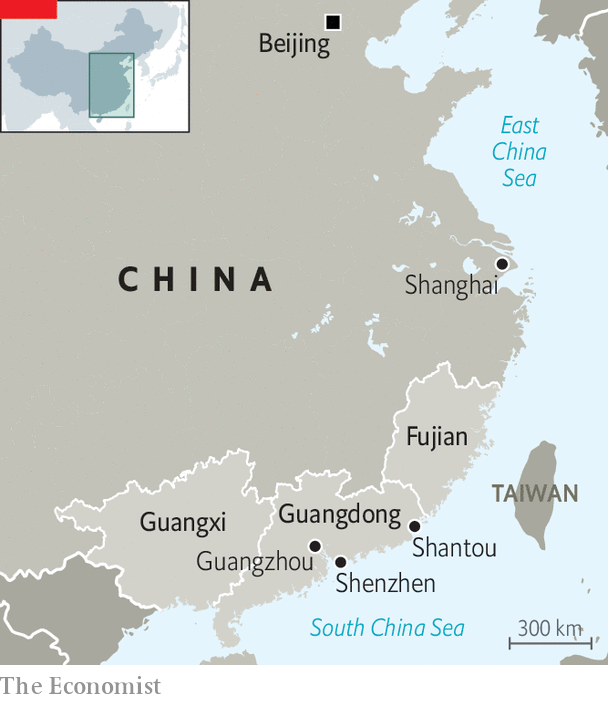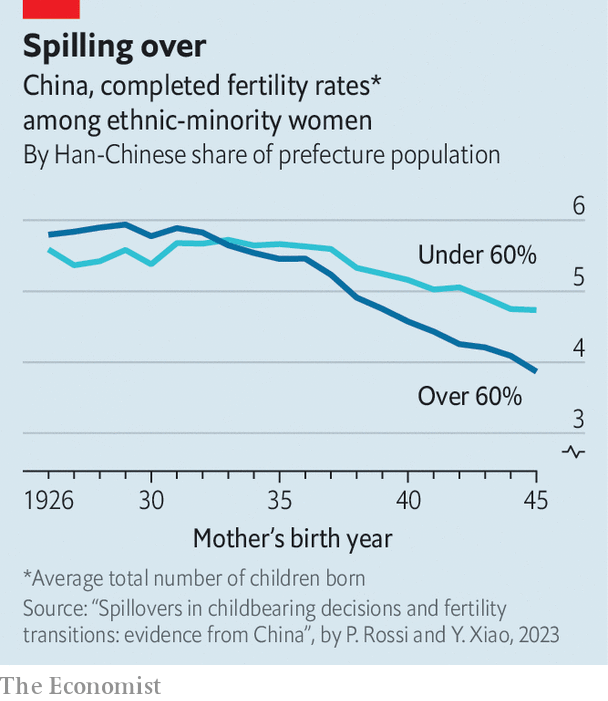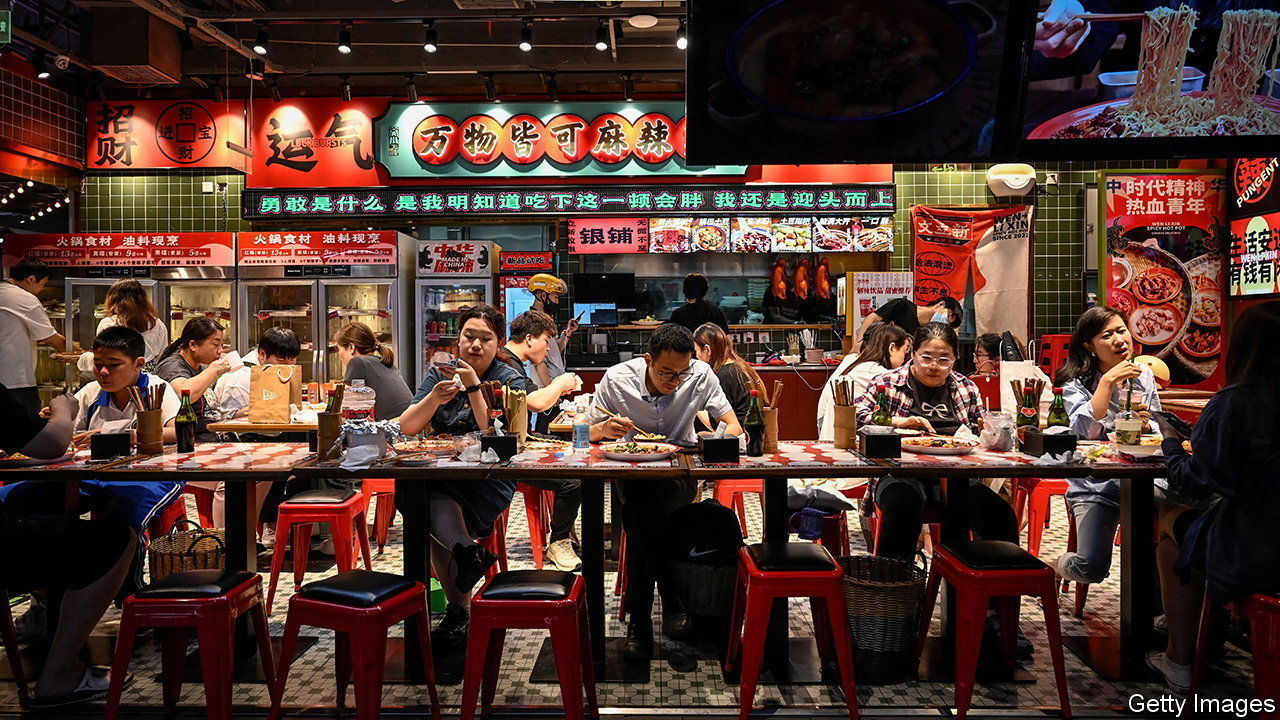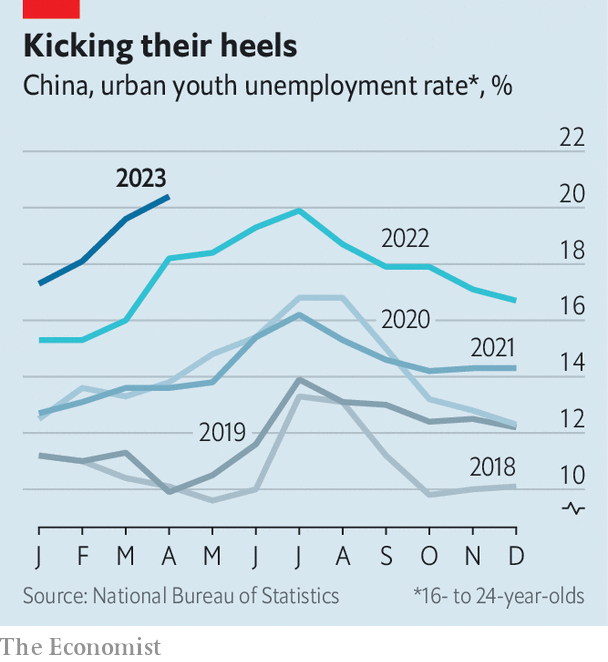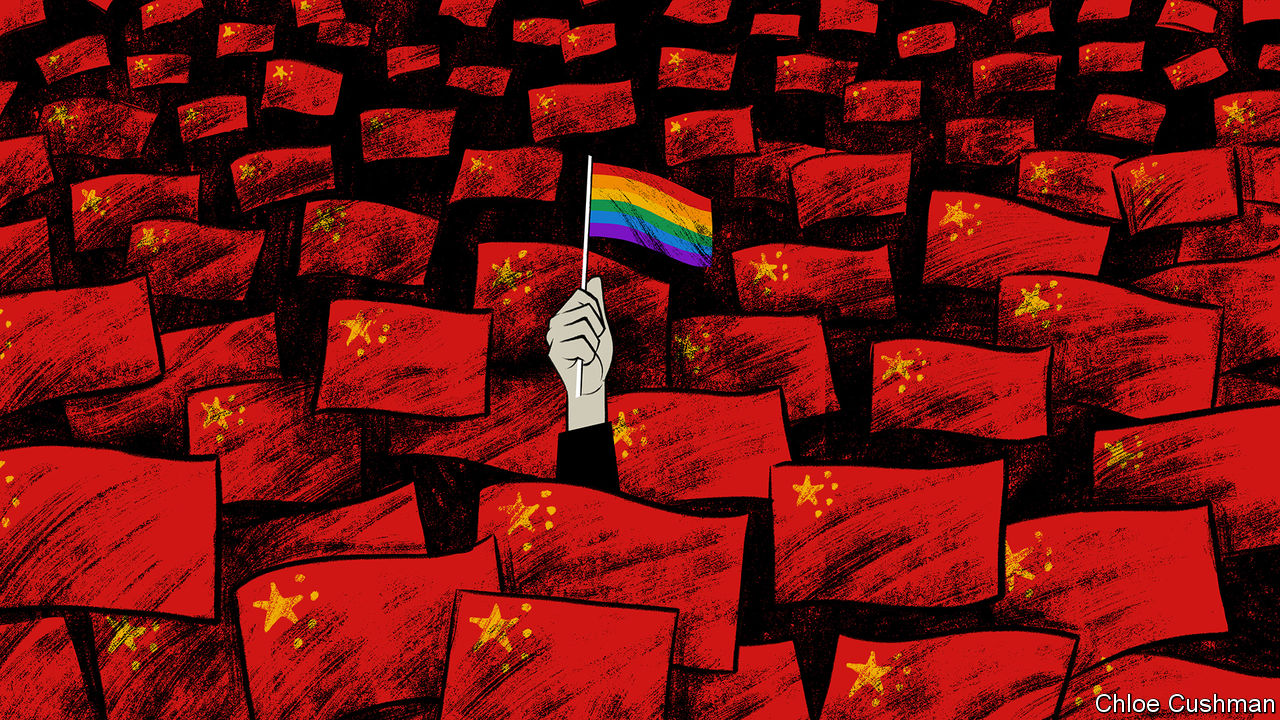A TEAM OF Chinese-led scientists made international headlines in May with newly published research that showed a surprising result. The Ice Age humans who crossed what is now the Bering Strait and populated North America had origins not only in Siberia, as previously known, but also in coastal China. The work of the team, which included Italian researchers, involved the collection and analysis of 100,000 genetic samples covering modern populations from nearly all of Eurasia, and more than 15,000 ancient samples. It is the kind of painstaking collaborative work that…
Category: The Economist
The end of Western naivety about China
Among Western democratic governments, this is a moment of unhappy clarity about China. Their bleak consensus follows years of naivety and wilful self-delusion about the nature of Xi Jinping’s regime. A changed mood—one of shared, durable gloom—was on display at the latest Stockholm China Forum. This is a gathering of American and European officials, scholars and business types that Chaguan has attended, on and off, since 2008 (Chinese diplomats and scholars attend some sessions). Listen to this story.Enjoy more audio and podcasts on iOS or Android. Your browser does not…
China is acutely vulnerable to rising sea levels
CHINA’s Communist party likes to think it is good at long-term planning. A glance along the country’s coastline might suggest that it is. More than 40 years ago Deng Xiaoping, the late paramount leader, started letting coastal cities dabble in free-market policies and attract foreign investment. Now the gleaming skyscrapers and bustling ports of Guangzhou, Shenzhen and Shanghai are at the heart of global supply chains. Locals’ wealth has increased a hundredfold. Immigrants from poorer inland areas have flocked to cities by the sea. Yet although Deng knew that the…
A famous brand of Chinese sweets reinvents itself again
Among the self-flying planes, swanky electric cars and model space-stations on display at an exhibition of Chinese wares in Shanghai in May was a decidedly untechnical relic of the past: White Rabbit creamy candies. For many older Chinese the milky flavour recalls a Communist-era childhood when few other treats were available. The sweets predate the Communist Party takeover in 1949. This year they turn 80. As one of the few pre-Communist products still thriving, they have a thing or two to teach China’s new tech upstarts about longevity. The rabbit…
New research helps explain why China’s low birth rates are stuck
The scars left by China’s population-control policies are clear. Last year, its population started to fall for the first time since 1962; its working-age population has been declining for a decade. A shrinking workforce acts as a drag on growth, and a swelling number of elderly puts pressure on the welfare system. Family-planning regulations like the one-child policy are widely blamed for depressing birth rates. But a less explored idea is that falling birth rates can ripple through the population causing the decline to be self-reinforcing. There has been little…
China goes from zero-covid to zero restrictions
There can be few things as symbolic of post-zero-covid China as a photo that popped up on social media in April. It showed that one of the many mobile booths used for administering covid tests in Shanghai had been turned into a bar. A year ago hundreds of thousands of Shanghai residents were being forcibly removed from their homes and taken to fever wards on the outskirts of the city. Now they are busy sipping beer. Listen to this story.Enjoy more audio and podcasts on iOS or Android. Your browser…
China’s young want to work. For the government.
China is a land of remarkable statistics. But an official figure published on May 16th still managed to stand out. The unemployment rate among China’s urban youth, aged between 16 and 24, exceeded one in five in April. The figure boggles the mind for a variety of reasons. China is running short of young people. It is trying, without much success, to raise the birth rate. Its economic future hangs on increased education, which could improve the quality of its workers even as their quantity declines. China is also famous…
China’s cancel culture is nationalist, not woke
Dog jokes are usually fairly inoffensive. The audience laughed when Li Haoshi, a Beijing-based comedian, wisecracked at a show on May 13th about seeing his two dogs chasing a squirrel. The dogs’ zeal, he said, reminded him of military slogans associated with the People’s Liberation Army (pla): “Forge exemplary conduct! Fight to win!” The slogans have become something of a motto for the armed forces (and are also favourites of President Xi Jinping). The incident may have ended Mr Li ‘s career. His joke was recorded and posted on Weibo,…
Small-town Chinese officials are making money with music festivals
Lockdown was brutal. But nature is healing. And, it turns out, nature is also part of the healing. As frazzled urbanites emerge from their pandemic hibernaculum into a grim economy, some want to venture to the great outdoors. Small cities and rural areas are obliging by putting on funky new music festivals where the youth can dance and hug and relax once again. Music festivals were a growing business when covid struck. China’s Woodstock moment had happened back in 2000, when the first festival emerged at Midi, a renowned music…
Why the Communist Party fears gay rights
These are grim and lonely times for China’s gay communities, as the country’s LGBT support groups are forced to close, one by one. This campaign of repression reveals a lot about President Xi Jinping’s China, a paranoid place in which security agencies and ideological commissars enjoy ever-greater clout. Listen to this story.Enjoy more audio and podcasts on iOS or Android. Your browser does not support the <audio> element. For the same message is delivered, time and again, whenever policemen question gay-rights advocates (and sometimes their family members). It is heard…


